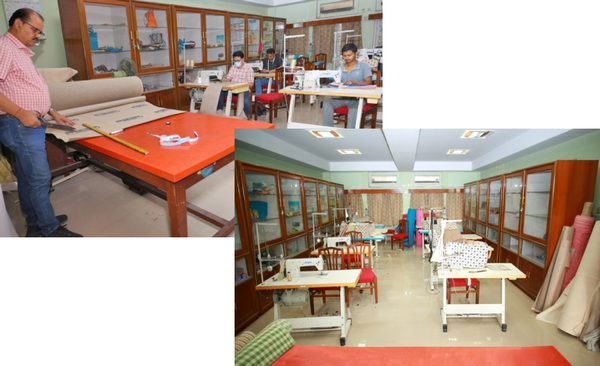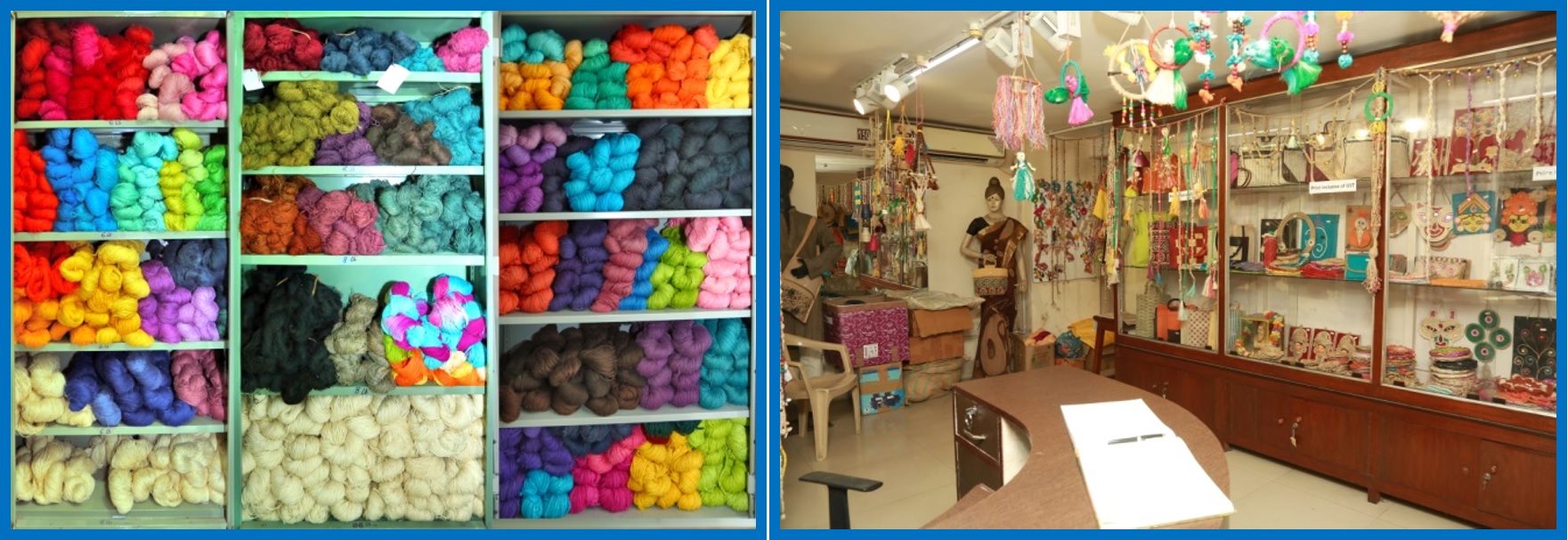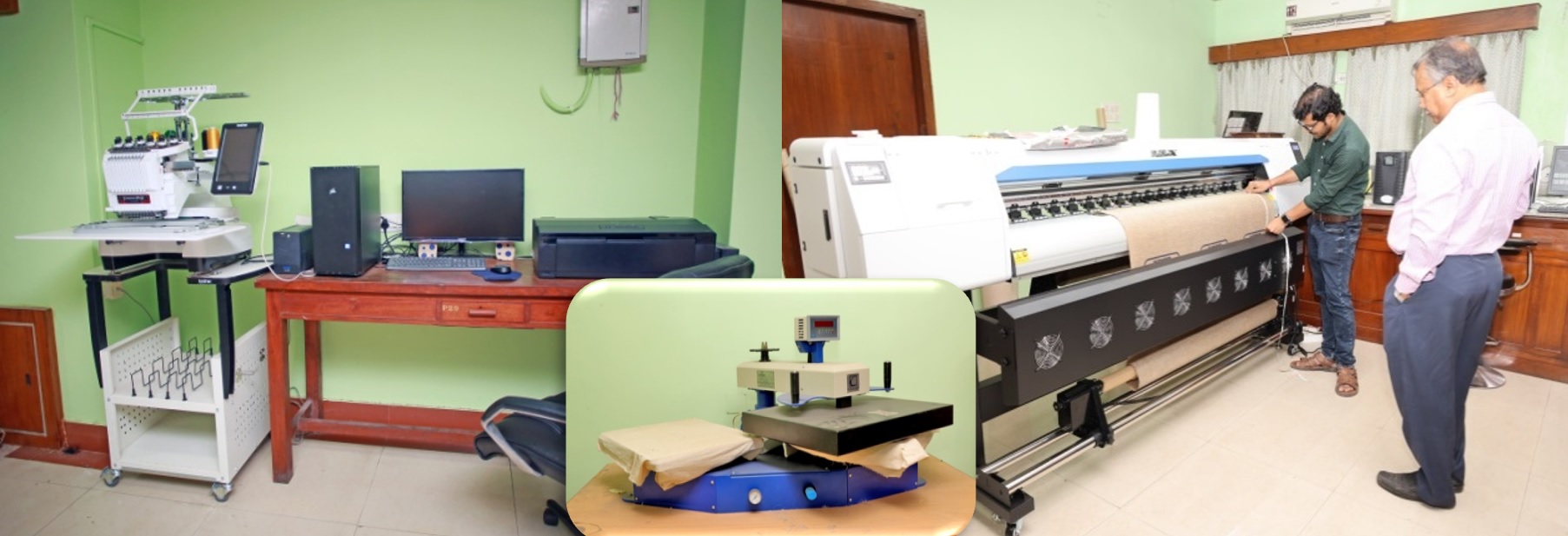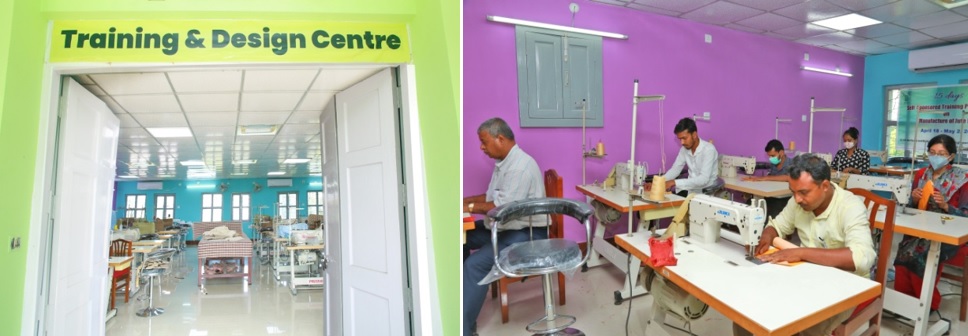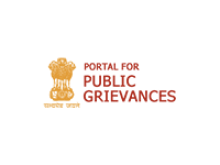Facilities
About the Laboratory
The Yarn
and Fabric Quality Testing Laboratory, accredited by NABL, specializes in
quality testing and grading jute and other natural fibers. Within its
facilities are mechanical grading instruments such as bundle strength testers
and airflow fineness meters, along with a Gravimetric fineness tester.
Additionally, the laboratory is equipped with BIS approved digital grading
instrument i.e., bundle strength
testers, digital fineness testers, and color and lustre meters, ensuring
accurate, reliable, and objective fiber analysis. Further, there are also multifibre testing
instruments. Through meticulous testing and precise measurements, the Fiber
Testing Laboratory upholds industry standards, facilitates innovation, and
fosters the development of high-quality fibers for a myriad of applications.
Mandate
§ Quality evaluation and grading of natural fibres
using instrumental method
§ Calibration of instate developed mechanical as well
as digital grading instruments
Nature of work
§ Conducting a range of tests to assess the quality,
strength, fineness, and other essential characteristics of fibers.
§ Grading of jute fibre as per BIS standard (IS: 271
(2020), IS: 7032(1986))
Instruments and Equipment available
|
Sl. |
Instrument/
Equipment |
Remarks |
|
1 |
Name of the
instrument |
Yarn linear density tester The wrap reel test, also
known as the skein or hank reel test, is a widely used method for measuring
the length and calculating the count of a yarn. This test is commonly
performed on spun yarns and is crucial for ensuring consistency and accuracy
in yarn production. |
|
Sl. |
Instrument/
Equipment |
Remarks |
|
1 |
Name of the
instrument |
Yarn twist tester A yarn twist tester
determines the twist in a yarn by twisting a fixed length of the yarn until
it kinks or unravels. The number of turns required to cause the kink or
unravelling is measured and used to calculate the yarn's twist per unit
length. |
|
Sl. |
Instrument/
Equipment |
Remarks |
|
1 |
Name of the
instrument |
Yarn hairiness tester A yarn hairiness tester is a
specialized instrument used to quantify the degree of hairiness in a yarn.
Hairiness refers to the presence of short fibers, or "hairs," that
protrude from the surface of the main yarn structure. A yarn hairiness tester
measures the number and length of protruding fibers (hairs) from the surface
of a yarn. |
|
Sl. |
Instrument/
Equipment |
Remarks |
|
1 |
Name of the
instrument |
Yarn evenness tester A yarn evenness tester, also
known as a yarn evenness testing machine or yarn imperfection tester, is a
specialized device used to measure and quantify the irregularities or
variations in the thickness and quality of a yarn. |
|
Sl. |
Instrument/
Equipment |
Remarks |
|
1 |
Name of the
instrument |
Instron universal testing machine Yarn strength is measured commonly using
Instron universal testing machine by pulling the yarn between the clamps and
by measuring the breaking force. |
|
Sl. |
Instrument/
Equipment |
Remarks |
|
1 |
Name of the
instrument |
Fabric thickness tester A fabric thickness tester typically employs a
mechanical or electronic mechanism to measure the distance between two
parallel plates or anvils under a specified pressure |
|
Sl. |
Instrument/
Equipment |
Remarks |
|
1 |
Name of the
instrument |
Porometer Gurley Porosity test: The Gurley porosity test measures the time
required for a specified volume of air to pass through a fabric sample under
specific conditions. This method is particularly suitable for fabrics with
relatively low air permeability. |
|
Sl. |
Instrument/
Equipment |
Remarks |
|
1 |
Name of the
instrument |
Air permeability tester The air permeability test for
fabric is conducted to measure the ease with which air can pass through a
fabric. The test helps assess the fabric's porosity and its ability to allow
air to pass through under controlled conditions. |
|
Sl. |
Instrument/
Equipment |
Remarks |
|
1 |
Name of the
instrument |
Digital bursting tester Bursting strength is a
mechanical property that measures the ability of a material, such as a
non-woven fabric, to withstand pressure without bursting or breaking. The
specimen is properly clamped and is the pressure of the fabric is gradually
increased at a controlled rate until the fabric bursts or ruptures. |
|
Sl. |
Instrument/
Equipment |
Remarks |
|
1 |
Name of the
instrument |
Abrasion tester The abrasion test for
non-woven fabrics assesses the material's resistance to wear and abrasion
under controlled conditions. This test is important for evaluating the
fabric's durability, longevity, and ability to withstand friction and rubbing
forces. |
|
Sl. |
Instrument/
Equipment |
Remarks |
|
1 |
Name of the
instrument |
Flammability tester A
flammability test for fabric is conducted to assess the material's response
to ignition and its ability to propagate flames. |
Contact
person:
Dr. Sanjoy Debnath
Head of Department
Mechanical Processing Division
E-mail: sanjoy.debnath@icar.gov.in






 Screen Reader Access
Screen Reader Access Login
Login Payment Portal
Payment Portal
